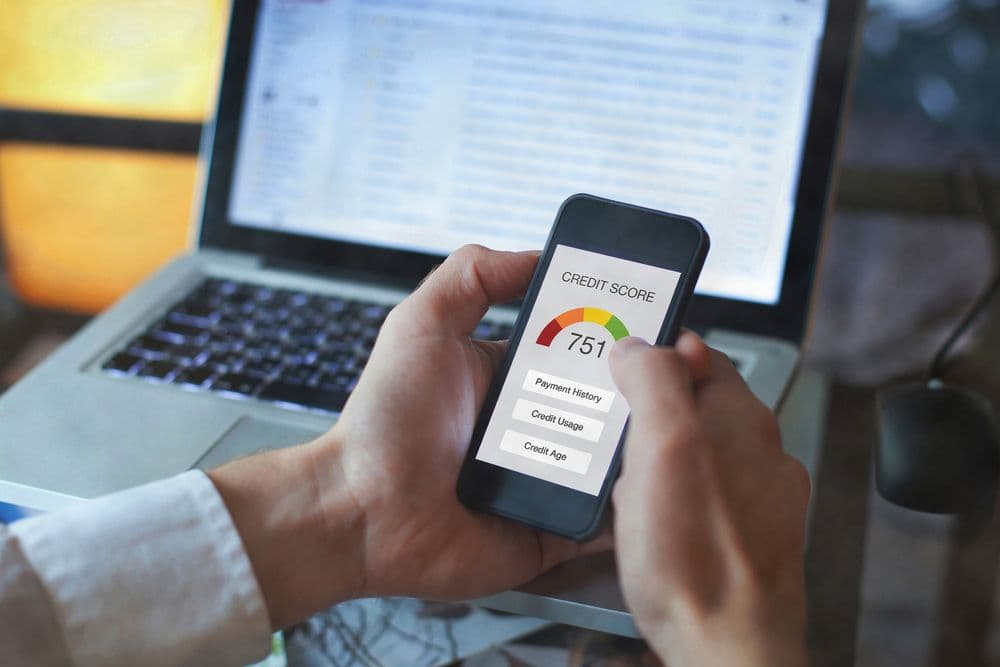Have you ever thought about closing your bank account? Perhaps you're switching banks, found a better rate elsewhere, etc. The reasons for closing your bank account in Canada can be numerous, but before you make such a decision, you should know that it can negatively affect your credit score.
In this blog post, we'll explore how exactly the closure of a bank account may affect your credit rating, and provide some tips on how to minimize the impact.
Ways That Closing a Bank Account Affects Your Credit Score
When you close a bank account, it appears on your credit report as an inactive account, which negatively impacts your credit score. It can make it appear as if you're less creditworthy, which can lead to a lower credit score. Additionally, if you have any outstanding balance on the account when you close it, this will also show up on your credit report and could further damage your credit score.
An inactive account is also seen as a sign that you may be in financial trouble. If you have other active accounts, it's important to keep them open so your credit utilization ratio stays low. This is the percentage of available credit that you're using, and it's one of the factors that affect your credit score. Lastly, closing a bank account can also lower your average age of accounts, which is another factor that affects your credit score.
Good Standing vs. Bad Standing Bank Accounts
You may have heard the terms “good standing” and “bad standing” when it comes to bank accounts, but what exactly do these terms mean, and how are they important in the context of your credit score?
Your bank account is in good standing when you have a positive balance, meaning that the total amount of money you owe your bank is less than the total amount of money your bank owes you. This usually occurs when you make regular deposits and withdrawals.
Your bank account is in bad standing when you have a negative balance. This happens when withdrawals exceed deposits, or if there are penalties and fees incurred as a result of insufficient funds. Ultimately, a person with a good standing bank account is said to be in "good financial health," while a person with a bad standing bank account is said to be in "bad financial health."
When you’re in good standing, closing your account will not have any impact on your credit scores. However, if you close an account that is considered to be in bad standing, it can negatively impact your score. Here’s an example - you may be charged interest if you do not repay an overdraft by the due date. Your bank may then send the amount you owe to a collection agency.
Does Closing a Savings Account Have the Same Negative Impact?
A savings account is a type of bank account in which the account holder deposits money and typically earns interest on the deposited funds. Savings accounts differ from checking accounts in that they are meant for longer-term storage, as opposed to transactions such as daily spending or bill payments. Money deposited into a savings account can usually be withdrawn at any time without penalty, although this may result in decreased interest earnings.
When you close a savings account, the bank will usually send you a check for the remaining balance. As long as you’ve paid any outstanding fees that may be associated with your savings account, it should not impact your credit score. But keep in mind that there may be penalties for closing the account early and if so, will likely be deducted from the check amount.
Safe Ways to Close Your Bank Account
If you’ve truly decided it’s time to close your bank account, here are a few tips to follow to ensure your credit score doesn’t take a negative hit.
1. Start by closing an unused account
If you have a bank account that you don't use, it's probably not doing you any good. In fact, it could be costing you money in fees. So if you close an unused account, it's unlikely to have any effect on your credit score.
2. Avoid closing multiple accounts at once
If you close more than one bank account at the same time, it could send up a red flag to potential lenders. They may think you're trying to hide something or that you're in financial trouble. So if you need to close more than one account, do it over a period of time instead of all at once.
3. Keep your credit history in mind
If you have a long history with a particular bank, closing the account could shorten your credit history. That's not necessarily a bad thing, but it's something to keep in mind. If you're thinking of closing an account, make sure you have other accounts that will help offset any negative impact on your credit history.
4. Check your credit report before and after closing an account
Before you close a bank account, check your credit report to see if there are any negative marks associated with the account. If there are, you may want to reconsider closing it. And after you close the account, check your report again to make sure it's been reflected correctly.
Will Cancelling a Credit Card Impact My Credit Score?
When it comes to credit cards, there are pros and cons to both closing and keeping them open. On the one hand, closing a card can help you stay disciplined with your spending since you'll no longer have the option of racking up debt. If you're carrying a balance on your credit card, closing the account can help you save money on interest charges.
On the other hand, there are several negatives to canceling a credit card. First, if you have any outstanding balance on the card, canceling it will not remove that balance. You will still be responsible for paying it off. Second, canceling a credit card can negatively impact your credit score. This is because canceling a credit card reduces your available credit, and can make it look like you're struggling financially.
Consider iCash Before Closing Your Bank Account
If you are struggling financially, before you decide to close your bank account, iCash can help. With several years of experience serving Canadians, we understand what it means to get you the money you need as quickly as possible. We offer instant payday loans of up to $1,500, with very flexible repayment plans and an application process that only takes a few minutes to complete.











